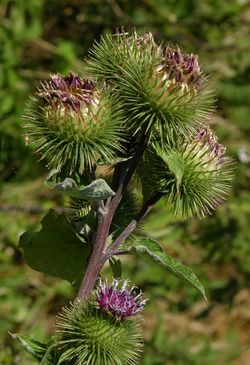Costus
From Wikiwel
Other Names: Aplotaxis lappa, Auckland Costus, Aucklandia costus, Aucklandia Lappa, Costus Oil, Costus Root, Kushtha, Kuth, Mokko, Mokkou, Mu Xiang, Radix Aucklandiae, Saussurea costus, Saussurea lappa, Saussureae Radix, Yun Mu Xiang, Snow Lotus
Costus is an herb. The root and oil from the root are used to make medicine.
Contents
Special Precautions of Costus
- Costus seems to be safe for most people. However, costus often contains a contaminant called aristolochic acid. Aristolochic acid damages the kidneys and causes cancer. Don’t use any costus preparation unless lab tests prove it is free of aristolochic acid. Under law, the Food and Drug Administration (FDA) can confiscate any plant product that it believes contains aristolochic acid. The product won’t be released until the maker proves it is aristolochic acid-free.
- Pregnancy and breast-feeding: Not enough is known about the use of costus during pregnancy and breast-feeding. Stay on the safe side and avoid use.
- Allergy to ragweed and related plants: Costus may cause an allergic reaction in people who are allergic to the Asteraceae/Compositae plant family. Members of this family include ragweed, chrysanthemums, marigolds, daisies, and many others. If you have allergies, be sure to check with your healthcare provider before taking costus.
The benefits of Costus are
- Cancer : Saussurea shows promise for protection against cancer. In a study published in Biological & Pharmaceutical Bulletin in 2004, for example, tests on human gastric cancer cells revealed that Saussurea lappa may help suppress the growth of tumors and induce apoptosis (a type of programmed cell death essential for stopping the proliferation of cancer cells).
- Heart Health : Several studies indicate that saussurea may enhance heart health. These studies include a report published in Journal of Advanced Pharmaceutical Technology & Research in 2013, which tested Saussurea lappa's effects on rats and determined that the herb may help fight myocardial injury. (Marked by damage to the heart's muscular tissue, myocardial injury is closely associated with heart attacks.)
- Liver Health : Saussurea lappa may be beneficial in the treatment of liver disorders, according to an animal-based study published in Phytotherapy Research in 2010. In tests on mice, the study's authors found that treatment with Saussurea lappa helped reduce the liver damage associated with hepatitis.
- Worm (nematode) infections. In children, costus root reduces the number of worm eggs in the feces about as well as treatment with a usual medication called pyrantel pamoate. Egg reduction is a measure of the effectiveness of the treatment.
- Digestive problems.
- Gas.
- Angina
- Asthma : Some researchers think that the chemicals in costus oil might prevent the airways from narrowing, and this effect lowers blood pressure.
- Cough.
- Dysentery.
- Cholera
- Source of Inulin prebiotic.
- Costus Root Essential Oil has the following properties: antiseptic, antispasmodic, antiviral, bactericidal, carminative, digestive, expectorant, febrifuge, stimulant, stomachic, and tonic. It is also used as incense, as a fixative and fragrance component in cosmetics and perfumes.
Actions (TCM)
- Promotes the movement of Qi, alleviates pain - stagnant qi of the stomach and/or spleen causing lack of appetite, abdominal pain, distention, nausea; liver or gallbladder qi stagnation causing flank pain, distention.
- Regulates stagnated Qi in the intestines - diarrhea, abdominal pain (common herb to treat tenesmus).
- Strengthens the spleen and prevents stagnation, used with tonifying herbs to reduce side effects.
